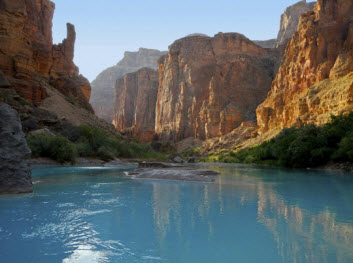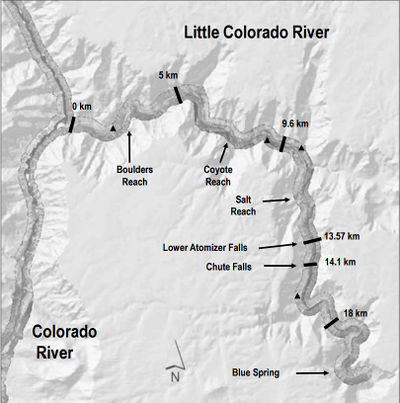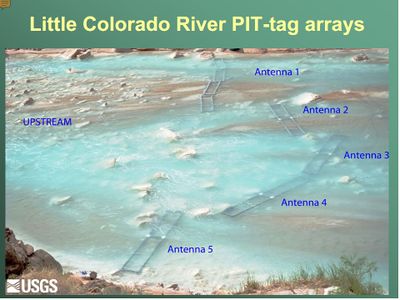Little Colorado River (LCR) Projects
From Glen Canyon Dam AMP
Revision as of 10:55, 28 April 2017 by Cellsworth (Talk | contribs)
|
|
|
| -- |
-- |
-- |
|---|
Spring and Fall LCR surveys (4 trips/yr) [1]
Juvenile Chub Monitoring (JCM)
LCR PIT tag array
|
|


